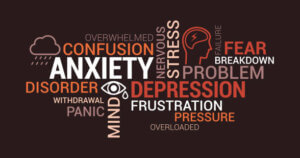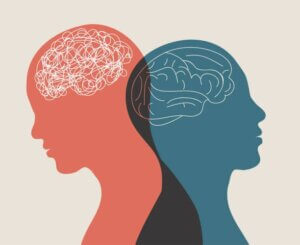Mental Health Awareness in Pakistan: Breaking the Stigma and Challenges
Mental Health Awareness in Pakistan: Breaking the Stigma and Challenges
Explore the growing movement for mental health awareness in Pakistan. The shame that surrounds and the efforts being made to promote better mental health care and well-being in the country. Mental health awareness in Pakistan: breaking the stigma and challenges.

Introduction
Mental health, which is an important component of overall well-being It is a problem that has long been neglected and misunderstood in Pakistan. Stigma around mental health issues Coupled with this is a lack of awareness and availability of resources. This makes it difficult for individuals to get the help they need. But in the past few years Mental health awareness has increased slightly in Pakistan. Due to the efforts of health professionals NGOs and social worker.
This article explores the current state of mental health in Pakistan. Social barriers that people face and increased efforts to raise awareness and provide appropriate mental health services.
Mental health crisis in Pakistan
Mental health disorders are more prevalent in Pakistan than many people realize. Studies have shown that approximately 50 million people in Pakistan suffer from mental illness. This includes more serious conditions such as depression, anxiety, schizophrenia and bipolar disorder. But in most cases there is still social stigma. lack of amenities and insufficient awareness combined. not treated In a country where poverty, conflict and instability are major causes of stress, A mental health crisis is quietly growing. suicide rate substance use and increased domestic violence Directly linked to untreated mental health conditions which affects individuals, families and communities.
Common intellectual health diseases in Pakistan

- Depression: Depression is one of the most common mental fitness issues in Pakistan. It impacts people of all ages. It is often ignored as suffering or weak point. This continues humans from looking for treatment.
2. Anxiety: Anxiety disorders are not unusual but are often seen as immoderate fear or pressure. People are less aware about the long-term effect on their every day functioning.
3.Post-Traumatic Stress Disorder (PTSD): Pakistan’s political and social unrest. Along side herbal screw ups As a end result, many people be afflicted by PTSD, and the condition often is going undiagnosed due to a loss of specialized care.
4. Schizophrenia and Bipolar Disorder: These critical mental health situations require long-time period care and treatment. Which is regularly not to be had in most areas of the country
The role of stigma in beliefs about mental health

In pakistani society Mental health issues are often viewed as a “taboo” subject. Cultural and non-secular misunderstandings about mental health pollution contribute to an enduring stigma that prevents people from seeing them. Many believe that mental adjustment problems are likely due to “evil spirits” or a lack of religion. Some of these problems lead to alternative remedies. Including religious restoration or home remedies instead of medical treatment.
Consequences of stigmatization

- Delayed treatment: Due to the stigma surrounding mental illness. It is easy for many individuals to seek help in such situations.
- Isolation: People with intellectual disabilities are often ostracized and isolated from local society. Which is what makes the situation worse.
3.Discrimination: Those who seek funding or speak openly about their intellectual worth. They are often categorized as “lucky” or “unstable,” in addition to widening the gap between those who need help and those who provide it.
Lack of mental health resources in Pakistan
Even though the demand is increasing But Pakistan has a very limited mental health care infrastructure. According to the World Health Organization (WHO), Pakistan has fewer than 500 psychiatrists for a population of more than 230 million. In addition, mental health It is not prioritized in health policy. And there are virtually no public mental health services nationwide.
Challenges in delivering mental health care
- Limited experts: Pakistan lacks trained mental health professionals. including psychologists counselor and social workers
- Urban-rural divide: Mental health services are concentrated in urban areas such as Karachi, Lahore and Islamabad. Rural populations have little or no access to specialist help.
- Lack of Awareness: People often misunderstand what constitutes a mental health issue. This leads to under-notification and inadequate treatment.
- Cost of treatment: Private mental health services can be expensive. This makes it unnecessary for low-income groups. On the other hand, public mental health services are unavailable or underfunded.
Work for the government and NGO initiatives

This is a result of a long-standing exclusion of intellectual health consciousness. Non-governmental organizations (NGOs) and government health professionals have recently made efforts to raise awareness of this issue.
Policy directives and strategies
To incorporate mental health into a more comprehensive overhaul of health care, the government will take action. In order to protect the rights of those who struggle with intellectual fitness, the Mental Health Act 2001 has been violated. However, legal court docket matters are moving slowly in the interim. Additionally, funding for mental health services is still lacking.
NGOs and Grassroots Movements
Several NGOs in Pakistan have completed a critical function in elevating intellectual health attention and presenting help offerings. Organizations like Rozan, BasicNeeds Pakistan, and Taskeen consciousness on providing counseling, spreading consciousness, and supplying get admission to to treatment for those in need.
- Rozan: Rozan focuses on emotional fitness and nicely-being, particularly in susceptible groups. The corporation provides counseling services, academic applications, and consciousness campaigns.
- Taskeen: Taskeen runs campaigns to destigmatize highbrow health issues and provides property for highbrow well-being. They reason to normalize conversations around mental health.
- BasicNeeds Pakistan: This NGO works to improve the quality of life for humans dwelling with mental health conditions and gives network-primarily based absolutely care applications.
The Role of Social Media in Raising Mental Health Awareness
Social media systems in Pakistan have become a effective tool in raising reputation about highbrow fitness troubles. Mental health advocates, psychologists, and influencers use systems like Instagram, Facebook, and Twitter to share sources, private recollections, and recommendation, encouraging others to open up approximately their struggles.
Online support groups and hashtag campaigns

1.Mental Health Matters: This well-known hashtag has been used by users to raise awareness of intellectual fitness challenges and to break the taboo surrounding mental health issues.
Online support groups are a great resource for anyone looking for a secure place to talk about their mental health and get advice from others who have experienced similar things.
Numerous groups have emerged on social media sites such as Facebook.
2.The Changing Culture: A Growing Conversation Regarding Mental Health
Though stigma around intellectual health persists, the dialogue is progressively changing. Media attention to the subject of intellectual health and educational activities are helping to foster a significant but slow-moving shift in society.
- Youth-Led Initiatives: Young people in Pakistan are especially active in the motion to raise intellectual health attention. Universities and schools are incorporating mental fitness schooling into their well being applications, while pupil-led projects and golf equipment focus on destigmatizing mental health troubles.
Impact of Pakistani celebrities
Celebrities and public figures have started talking openly about their struggles with mental health issues. This helps normalize verbal exchanges. Famous people like Mahira Khan, Hareem Farooq, and others have used their system to discuss the issue of cognitive conditioning and the importance of seeking help.
The role of religious leaders in mental health counseling
Religion plays a full role in the daily life of Pakistanis. And non-secular leaders can have a profound impact on public beliefs. Progressive non-secular researchers are increasing the importance of being mentally sound and encouraging people to seek professional help for mental health problems. Some of which help reduce the stigma associated with it. Suggestions for improving mental health and consciousness Thankfully, Pakistan’s mental health crisis is a guide to disruption from many angles. Here are some suggestions for improving the identification and treatment of mental health conditions:
- Education and evidence campaigns: Campaigns to raise public awareness through the media. educational institution And community initiatives aim to perpetuate the myth. About intellectual well-being
- Increasing the health workforce: The government should invest in training more psychiatrists, psychologists and counselors. To meet the increasing demand for intellectual health services
- Integrating mental health into primary health care: Mental health training must be covered in primary health care to be especially beneficial. Especially in rural areas
- Available treatment options: Public health institutions must have adequate funding to provide reasonable mental health care.
